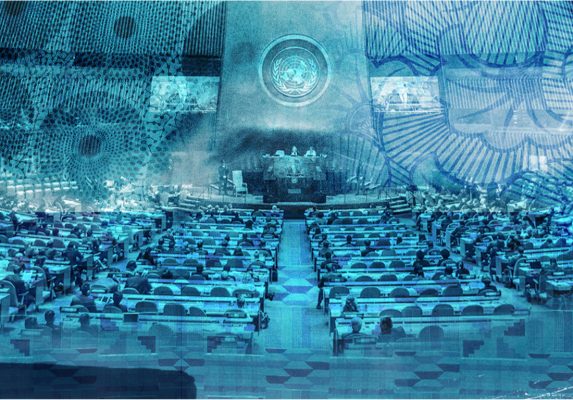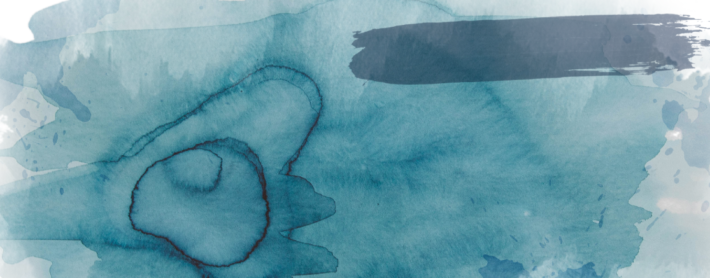The One Ocean Hub Contributions to the United Nations Secretary General Priorities for 2021


Before the General Assembly session starting on 28th January 2021, UN Secretary General António Guterres outlined ten priorities for 2021. This article highlights how the One Ocean Hub seeks to contribute, through innovative research collaborations, to seven of these priorities, thanks to its focus on the inter-dependence of human rights and the marine environment, and on the need to include various voices that are often overlooked in ocean governance (women, youth, indigenous peoples, and small-scale fishers).
The ten priorities identified by UN Secretary General Guterres are to:
- respond to COVID-19;
- start an inclusive and sustainable recovery;
- make peace with nature;
- tackle the pandemic of poverty and inequality;
- reverse the assault on human rights;
- address the world’s greatest human rights challenge: gender equality;
- heal geopolitical rifts and find common ground;
- reverse the erosion of the nuclear disarmament and non-proliferation regime;
- seize the opportunities of digital technologies while protecting against their growing dangers; and
- launch a reset for the 21st century’s governance of critical global commons.
On responding to COVID-19, Hub research seeks to enhance the sustainability of ocean science initiatives, including individual and institutional capacity, in light of the current pandemic. In the Global South, the COVID-19 pandemic has led to unequal impacts on researchers, with the increased costs of public health often resulting in reduction in research funding. By continuing its commitment to capacity building during and after the pandemic, the Hub is contributing to the protection of science, technology, and innovation in developing countries that will be critical to the achievement of the 2030 Agenda for Sustainable Development through a sustainable and inclusive recovery.
For instance, as a rapid reaction to the restrictions adopted to respond to the current pandemic, the Hub developed a programme of online capacity-strengthening activities, and is developing a number of online workshops in offshore research practices including in taxonomy, offshore invertebrate sampling, curation and monitoring techniques, and species distribution modelling. Once developed these resources will be available for broader audiences and will provide a resource for future learning. In addition, the Hub is devising new ways to support transdisciplinary research in solidarity with the coastal communities we are working with. In South Africa, the Hub supported small-scale fishing communities and leaders through the Coastal Justice Network. Social media platform WhatsApp was used to create groups for communication, with the aim of supporting fishers through the pandemic. Data was provided, as many fishers did not have the resources. Fisher leaders would communicate with their community. This interaction highlighted impacts such as on their right to clean water and coastal resources for food, procedural right infringements through exclusion from participation in environmental impact assessment processes (that moved online during COVID) as they had no access to smart technology and data to participate or understand information provided and finally their livelihoods impacted by slow policy implementation and right allocations delayed. This meant that through the network fishers connected with NGOs, researchers and legal advisors to support them through these ongoing challenges.
On starting an inclusive and sustainable economic recovery, Guterres highlighted the need to include poor countries in the process and to embrace renewable energy, and green and resilient infrastructure. Inclusivity and sustainability form the high-level objectives that guide the Hub’s research at global, regional, and national levels. The Hub is looking into how marine spatial planning, from the local to the international level, can include a wide range marine sciences findings, as well as social sciences findings, with a view to identify hidden trade-offs and understand socio-ecological systems also in their cultural dimensions. Equally, the Hub is seeking to understand how marine spatial planning processes can be more inclusive of diverse voices and knowledge systems, with a view to ensuring the protection of the rights of indigenous and local knowledge holders, women and youth and support them in shaping ocean governance.
On making peace with nature, the UN Secretary General stressed the importance of the upcoming UN Climate Conference COP26 as a moment of truth for climate action and the upcoming UN Biodiversity Conference (COP15) as a chance to halt the extinction crisis through a new post-2020 biodiversity framework. He further underlined that the world must accelerate action to stop overfishing, drastically reduce pollution — including plastics — and promote the blue economy particularly in the preparation for the Ocean Conference in Portugal later in 2021. The One Ocean Hub is planning to engage negotiators and stakeholders on the climate change-biodiversity-ocean nexus at these international events, from the combined perspective of social and natural sciences. Attention will be placed on sustainability and justice from a human rights perspective.
On tackling poverty and inequality, Guterres emphasised the role of education as a great enabler and equaliser, and how the COVID-19 pandemic is having disproportionate impacts on women, girls, minorities, people with disabilities and those on the margins. The Hub takes a holistic approach to address these challenges, and has contributed to document specific challenges among coastal communities. A greater balance between conservation and sustainable use of the ocean is needed to avoid negative impacts on poverty reduction, food security, cultural heritage, decent employment, and fair and equitable economic development. To that end, the Hub applies the UN Principles on Human Rights and the Environment to guide the development of coherent, pro-poor, gender-sensitive, climate-proofed and transparent frameworks for ocean management not only across sectors, but also across scales. The latter is crucial as, for instance, small-scale fishing communities’ access to markets and resources (SDG 14.b) is affected by international trade liberalisation, limited international technology transfer, regional and bilateral fishing agreements, and lack of recognition of their rights and knowledge in regional, national and local decision-making processes. By combining efforts on ocean literacy and legal empowerment, the Hub seeks to support those experiencing poverty and inequality to protect their human rights from negative impacts arising from ocean-related decisions. By producing an integrated evidence base and new methodologies (including art-based ones) for constructive and inclusive debate on the ocean, the Hub is seeking to support public bodies, the private sector and other sectors of society in fulfilling their responsibility to respect the human rights of those experiencing poverty and inequality.
On reversing the assault on human rights, the One Ocean Hub is focusing on bringing together law, marine and social sciences and the arts to ensure the protection and fully realization of the human rights that are dependent on a healthy ocean. We are particularly concerned about the limited attention paid so far to the linkages between everyone’s human health and marine biodiversity, as well as to the dependence of children’s and young people’s human rights on a healthy ocean. In Ghana our researchers are engaging with national authorities tasked with the promotion and advancement of human rights to strengthen advocacy and access to information for vulnerable coastal communities, particularly women and children. Furthermore, we are developing integrated evidence base on real-life challenges for the protection of the human rights of indigenous peoples and small-scale fishers in the context of the blue economy, also in preparation for 2022 – the International Year of Artisanal Fisheries and Aquaculture. The changes we wish to contribute to, internationally, are:
- for international human rights bodies and ocean-related bodies to support states in better understanding and protecting the human rights that may be negatively affected by decisions on the ocean, as well as more effectively protect the ocean’s health as a matter to everybody’s benefit; and
- for international human rights bodies to include in their monitoring practices compliance with the human rights in the context of country-level decisions on the ocean.
On addressing gender equality, the One Ocean Hub is investigating gender equality in ocean science, ocean-related decision-making and in the blue economy, including through the lens of human rights. In addition, from a policy perspective, we are completing an analysis of blue economy policies and Sustainable Development Goals (SDGs), which found weak synergies with gender and gender equality; this was largely because gender equality and ‘empowerment’ (as described by the SDGs) necessitate context to be understood appropriately and are challenging to address at a range of scales (Niner et al., in prep). In South Africa, the Hub is facilitating research and development among woman fisher leaders. Our researchers such as Dr Dylan McGarry and Ms Buhle Francis, have collaborated with women fisherfolks in Hamburg, Eastern Cape, South Africa, that have experienced injustice around fishing permits. Most of these women have travelled long distances and spent money on permits, but did not get their permits approved.
On launching a reset for the 21st century, Guterres called for the reinforcement and re-imagination of our governance of critical global commons, such as public health and the natural environment. At the One Ocean Hub we believe that a reset of our governance of critical global commons requires collaboration with different sectors of ocean use at multiple scales, notably with a view to equally benefiting human health and a healthy ocean. For instance, work conducted by one of our researcher, Dr Philile Mbatha, on environmental assessment in South Africa seeks to examine the impacts and benefits of port expansion and mining activities upon small-scale fishers. By doing this, Mbatha highlighting the interconnection between different stakeholders across different natural resources sectors that affect ocean health.